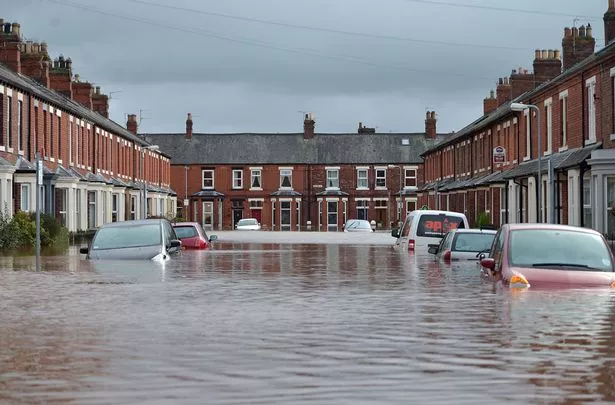Increasing Floods, Why They're Happening and What We Can Do
By 2050 one in six properties in England will be affected by flood risk, according to a report from Bayes Business School.
The risk of increased flooding in the UK is on the rise, affecting both urban and rural areas. Not only are these events becoming more frequent, but their intensity and impact are also escalating.
Floods destroy homes, businesses, disrupt transport and in severe instances they can be life threatening. Recently, we have seen floods overloading our sewers and contaminating flood water, which can spread disease.
Why is this happening?
Climate change, a growing population and loss of green space are causing increasing floods, according to the Environment Agency.
As the Earth's atmosphere is warming, the rising temperatures lead to increased evaporation and a warmer atmosphere, which can hold more moisture. This intensifies rainfall events, resulting in flash flooding.
“Flash flooding happens when rain falls so fast that the underlying ground cannot cope, or drain it away fast enough." - Met Office
This is something we need to be concerned about as we experience more frequent storms and extreme weather, not just here in the UK but across the world.
Global warming causes the thermal expansion of seawater and the melting of glaciers and polar ice caps. Rising sea levels increase the risk of coastal flooding, particularly during storm surges and high tides, affecting low-lying coastal areas.

What can be done?
Embracing a low-carbon future is imperative for mitigating the impacts of climate change, and this transition requires concerted efforts from both businesses and individuals.
Companies must invest in green alternatives, adopting sustainable practices and technologies to reduce their carbon footprint. This includes transitioning to renewable energy sources, implementing energy-efficient practices and adopting eco-friendly production methods.
Simultaneously, at the individual level, households play a crucial role by considering environmentally friendly solutions such as solar panels and air source heat pumps.
Investing in solar technology harnesses clean energy from the sun, reducing reliance on traditional power sources. Air source heat pumps offer an efficient and sustainable alternative for heating homes. These collective efforts in pursuing low-carbon alternatives not only contribute to environmental conservation but also foster a more sustainable and resilient future for both businesses and households alike.








Comments